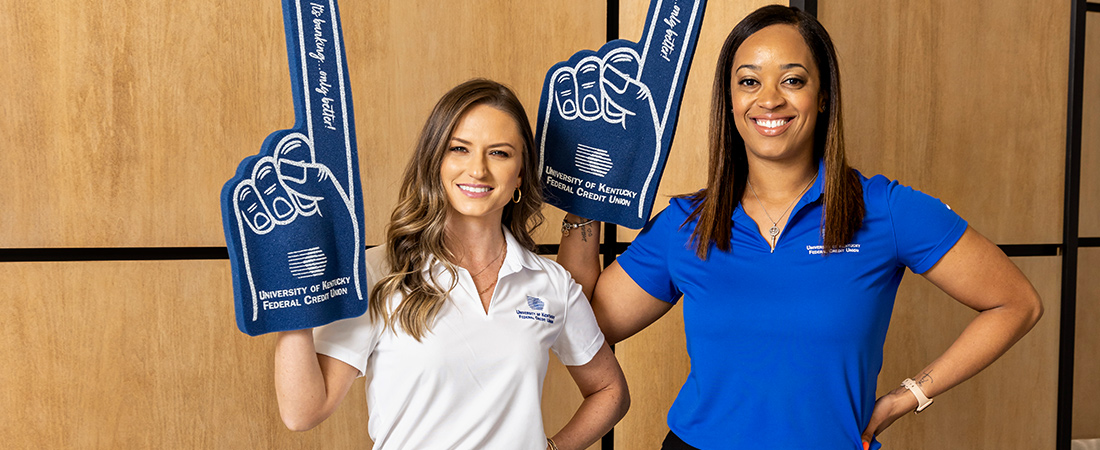When is it the right time to start discussing money and finances? There is no universal correct answer, but the reality is that it’s never too early. Typically, this isn’t a conversation for your first date, but as you and your partner begin to talk about life goals or start to share expenses, you can usually find an easy segue into the topic.
For example, if you and your significant other are talking about your dreams and aspirations and someone mentions retiring on a tropical beach by the time they’re 55—here’s a great chance to ask, “Do you have a 401(k)?” or “How are you planning to save that much so quickly?” You do not have to ask them something direct like how much money they have. Understanding if they have a personal game plan for their finances, spending, and savings is a good baseline to know.
Open communication about money is essential in a relationship. It not only helps to establish mutual understanding but also fosters trust and strengthens your partnership. Avoiding conversations about money can lead to misunderstandings, resentment, and financial conflicts down the road.
Put All Your Cards on the Table
Don’t make it a real-life game of Blackjack where you’re gambling every day. When you and your partner do finally sit down and agree to discuss your finances, this is the time to get it all out there. Don’t hold back—share the good, the bad, and the ugly.
In order to create a successful game plan for managing your finances, you must both have a clear picture of where you’re starting—even if it includes the dreaded word ‘debt.’ By having a transparent conversation about where each of you stands, it can actually make your relationship stronger by acknowledging the honesty and trust needed to discuss the topic.
Be Honest About Financial Backgrounds
When discussing finances, it’s essential to share your financial backgrounds. This includes discussing any debt you may have, such as student loans, credit card debt, or personal loans. Sharing your financial history will provide context for your current financial situation and help your partner understand your perspectives on money.
You might find that your views on spending and saving are influenced by your upbringing or past experiences. For example, if one partner grew up in a household that emphasized saving, while the other was raised in an environment where spending was more common, these differing backgrounds can lead to misunderstandings.
Analyze Your Current Spending
After sharing all of your finances, income, and expenses, you can begin to dive into the gritty details. Don’t be caught off-guard; each person is unique and will have different spending habits, and some may be vastly different. Don’t allow it to create animosity; simply acknowledge that they spend differently than you. Different amounts and potentially in different categories.
For instance, one of you might have a serious Starbucks addiction, while the other spends a surprising amount of money on their passion or hobby. It’s okay—this is the time to discuss it and understand how it affects your overall budget. By openly discussing your spending habits, you can find common ground and establish mutual financial goals.
Identify Common Spending Patterns
Take the time to analyze your spending habits together. Review bank statements and credit card bills to identify areas where you both spend the most. This can lead to a productive conversation about what is necessary versus what is discretionary spending.
For example, if one partner spends heavily on dining out, while the other prefers to cook at home, this can be a chance to discuss compromises. You might decide to allocate a specific amount for dining out each month while focusing on home-cooked meals on other days.
Creating a Budget
When creating a budget, you need to identify a few things: (1) your goals; (2) your income; and (3) your total expenses. The first item—your goals—is what will drive your overall attitude towards the budget and your spending.
If you and your significant other are planning to purchase a home, or even start smaller with a Caribbean vacation, you’ll need to identify how much you plan on saving each month to achieve your goal. This step helps establish a shared vision for your financial future and aligns your spending habits with your long-term aspirations.
Understand Your Income
The easy part—your income. Well, this can be easy for some individuals if you have a traditional 9–5 salaried job. But if you own your business or work in the service industry, you know that your monthly income can fluctuate. It’s best, if possible, to use an average over the last 12 to 24 months to guide your expectations.
Always leave out bonuses and one-time income cash flows. In most cases, bonuses are not guaranteed and can fluctuate based on your performance, as well as your organization's policies. Having a clear understanding of your combined income will provide a solid foundation for creating a realistic budget.
Calculate Total Expenses
And the hard part—setting limits on expenses. First, start by identifying categories that most, if not all, of your expenses will fall into. For example, rent/mortgage, utilities, groceries, eating out, gym memberships, clothing, etc. Use your analysis from the previous step to estimate what you should budget for each category.
Hint: you may need to decrease your spending limit in certain categories to make your overall budget work to support your savings goals. For example, if you both enjoy dining out, consider setting a monthly limit to encourage home cooking while still allowing for occasional restaurant visits. This compromise can satisfy both partners’ desires without compromising your financial goals.
Assign Responsibilities
Just like other household duties—washing the dishes and laundry—it’s a good idea to clearly communicate financial roles. Who’s in charge of making sure the utility bill gets paid? Who’s job is it to ensure deposits are being made into your savings accounts?
And remember, if everyone is in charge, no one is in charge. Clearly defined responsibilities can help ensure that bills are paid on time and savings goals are met. You might consider creating a shared calendar or app where both partners can track due dates and payments. This visibility can enhance accountability and promote teamwork in managing finances.
Have a Plan B
If you haven’t learned at this point in your life, regardless of your age, life is full of twists and turns and surprises. Bad things happen, as well as good things. Your significant other may end up with an amazing job opportunity that they can’t pass up, but it’s on the other side of the country. That can put a wrench in your savings plans and budgeting if you have to move.
You don’t necessarily need to have an emergency savings fund, but it can be helpful to have the conversation of “what if” so that you both understand different ways you might reallocate money if you needed to. Discussing potential scenarios, such as job loss or unexpected medical expenses, can help you prepare for financial challenges together.
Having an emergency plan can provide peace of mind and help you navigate uncertainty as a team. Consider setting aside a small portion of your monthly budget for an emergency fund to cushion against unexpected expenses.
Accountability
At this point, you’ve done the heavy lifting. The difficult conversations, the analysis, and creating a budget—you’ve created a great financial foundation. Now you simply need to hold yourself (and your partner) accountable.
Depending on your comfort level, decide whether monthly check-ups make sense, or maybe quarterly if you both are conservative spenders. The check-ups will create accountability in your relationship and hopefully ensure you stay on track for your savings goals.
During these check-ins, review your progress toward your financial goals. Celebrate your successes, and if there are areas where you need to improve, discuss how you can adjust your budget or spending habits moving forward. This ongoing communication can help prevent misunderstandings and foster a stronger financial partnership.
Consider Professional Guidance
While open communication and teamwork are essential for managing finances as a couple, sometimes it helps to get advice from an expert. A financial advisor can provide valuable insights tailored to your unique situation, helping you and your partner make informed decisions about your financial future.
How a Financial Advisor Can Help:
- Setting Long-Term Goals: Whether you're saving for a home, planning for retirement, or aiming to grow your investments, a financial advisor can guide you in setting realistic and achievable goals.
- Creating an Investment Strategy: If you're looking to build wealth together, a financial advisor can help you create an investment strategy that aligns with your risk tolerance and timelines.
- Budget Optimization: Advisors can identify areas where you can optimize your spending or savings to free up funds for your goals.
- Debt Management: If debt is a concern, they can recommend strategies to pay it off efficiently while staying on track with your other financial priorities.
At UKFCU, our investments team is here to help you and your partner navigate these important decisions. With personalized advice and access to a range of financial planning tools, we’re committed to supporting your journey toward financial wellness. Reach out to our investments team today to schedule a consultation. Together, we can create a plan that empowers you to take control of your finances and achieve your shared dreams.
Final Thoughts
Talking about money with your significant other may initially feel intimidating, but it’s an essential part of building a strong, healthy relationship. By having open and honest discussions about your finances, setting clear goals, and working together to create a budget, you can lay the groundwork for a prosperous financial future.
Remember, money is often cited as one of the leading causes of stress in relationships. However, by addressing financial matters proactively, you can reduce anxiety and enhance your bond with your partner.
At UKFCU, we understand the importance of financial literacy and are here to support you and your partner as you navigate your financial journey together. Whether you need assistance in creating a budget, understanding loan options, or setting financial goals, our team is ready to help. Get in touch with us today for help!












.png?language=en)